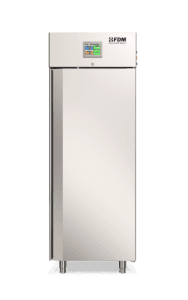
I materiali da costruzione sono tra i più regolamentati, per quanto concerne le prove climatiche.
I test climatici devono effettuati per il via libera alla commercializzazione e al successivo utilizzo dei materiali in questione.
Si tratta di composti che sono le fondamenta dei nostri edifici, dei ponti e delle strade delle nostre città.
I produttori di materiali da costruzione devono quindi sottostare a delle norme particolarmente stringenti e sottoporre i diversi provini a prove con temperatura ed umidità controllate.
UNI-EN-772-22: The Standard
Standard UNI-EN-772-22 comes with the subtitle “Methods of test for masonry units - Part 22: Determination of freeze/thaw resistance of clay masonry units”.
The standard implements the European CPR n.305/2011 for construction materials, which indicates, as an essential requirement of masonry units, both structural and non-structural, mechanical strength (also called compression strength) and stability.
UNI-EN-772-22 replaces UNI CEN/TS 772-22:2006, which had the same aim and has been integrated with additional inputs, in the new version.
Every material used for masonry, from bricks to perforated bricks, must meet the requirements of this regulation, in order to obtain the CE marking.
UNI-EN-772-22 therefore indicates the type of test for masonry materials to prove their mechanical resistance.
Any Questions?
If you have any questions about this standard or a specific test to be performed, call us or start the Chat with a member of the FDM Team directly.
UNI-EN-772-22: The Test
The samples to be tested must be standard 10, to be taken from materials not exceeding 20m3 in size.
The test required by UNI-EN-772-22 is part of the freeze/thaw tests, which you can learn more about here.
The freeze/thaw tests involve programming automatic temperature cycles that take the sample from standard temperatures to extremely low temperatures, in a quick and preset time.
However, the test starts with the sample being immersed in water at ambient temperature for 7 days.
Only then, it is subjected to freeze/thaw cycles, in order to determine the durability of the material and its resistance to moisture.
The cycles are 100 and reach a low temperature of -15° +/- 2K for two hours
The thawing of the sample is carried out with air at a temperature of 20⁰ +/- 2K for 20 minutes, followed by a water film at a temperature of 20⁰C +/- 2K for 2 minutes.
At the end of the test, samples are inspected.
The use of water jets as an essential part of the UNI-EN-772-22 test, requires manufacturers of building materials to have a test machine capable of guaranteeing all the above characteristics, in a single instrument.
Perform
Climate Stress
Discover the new series of Climate Chambers for controlled climate testing
FDM Climatic Chamber for UNI-EN-772-22
FDM Climatic Chambers with flooding system are the optimal solution for UNI-EN-772-22 compliant tests.
With a standard temperature range of 0-70° but extendable according to the specific requirements of customers, even our standard chambers, not only the environmental ones, can reach a negative temperature of -25°.
The humidity range is from 10 to 98%, to meet any testing need.
Our system of pools, which you can read more about here, consists of two containers inserted directly into the chamber and managed by a level device.
This configuration allows completing the test foreseen by UNI-EN-772-22, with the water jets applied to the material sample.
Do you have to perform tests according to the UNI-EN-772-22 standard?
Contact us to receive more information about FDM Climatic Chambers


